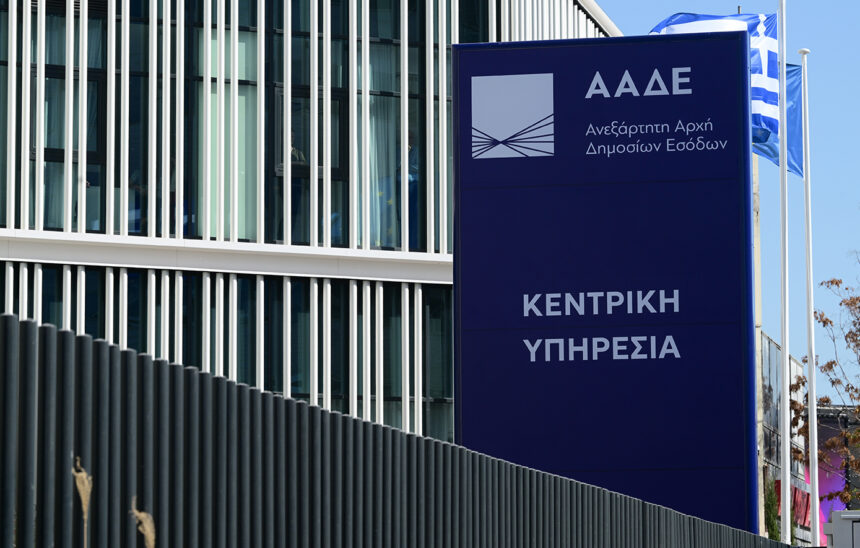The new year is expected to be decisive as it will determine the potential for further permanent tax cuts
2025 marks a new era for the country’s tax map, as a series of significant changes are put into place that substantially boost citizens’ disposable income.
At the same time, AADE strengthens the fight against tax evasion through new innovative technologies and tools, focusing on effective detection and combating it. The State’s strategy is based on two main axes: the reduction of taxes and the strengthening of income, with a special emphasis on the middle class. This social group is constantly affected by the exactness and high tax burden. 2025 is expected to be a defining year as it will determine the potential for further permanent tax cuts. AADE’s actions to combat tax evasion, combined with income enhancement measures, are critical factors in achieving these goals.
Significant fiscal interventions
The first axis includes an extensive package of tax interventions that will be implemented from 2025, with a total fiscal cost of 1.5 billion. euro. According to the Ministry of National Economy and Finance, these interventions are aimed at increasing disposable income, while at the same time harmonizing with the European fiscal framework that limits spending. Key fiscal interventions include:
- Reduction of social security contributions: A reduction of one unit will lead to wage increases and a reduction in non-salary costs. As of 2019, the total reduction reaches 5.4%, at a cost of 440 million. euros annually, benefiting both employees and employers in the public and private sectors.
- Abolition of pre-employment tax: The phase-out which started in 2024 ends in 2025 for freelancers and the self-employed, at a cost of €238 million. euro.
- Exemption of low-income pensioners from pharmaceutical expenses: About 132,000 pensioners will no longer participate in pharmaceutical expenses, at a cost of 23 million. euro.
- Tax exemptions for specific properties: Properties up to 120 sq.m. that are leased long-term are exempt from income tax for three years, at a cost of 3 million. euro.
- Health benefits: Exemption from insurance premium tax for health contracts concerning children up to 18 years of age, at a cost of 17 million. euro.
- Reduction of ENFIA: ENFIA is reduced by 20% for residences of natural persons with a taxable value of up to 500,000 euros, at a cost of 18 million. euro.
- Abolition of fixed telephony fees: The measure concerns high-speed optical fiber connections, at a cost of 24 million. euro.
Income support
The second axis includes seven measures to directly boost incomes, in order to strengthen social cohesion and improve citizens’ purchasing power. These measures include:
- Pension increases: Pensions rise by 2.4%, at a cost of 398 million. euro. At the same time, the salaries of military school students are also increasing.
- Student housing allowance: The allowance for students from regional universities increases by 500 euros, reaching 2,500 euros in case of cohabitation. The total cost is 15 million. euro.
- Compensation boost: Night work compensation for uniformed personnel is being increased, at a cost of €25 million. euro.
- Minimum wage: The minimum wage will increase further in 2025, while the salaries of civil servants will be adjusted accordingly.
- Armed Forces Allowances: The special conditions allowance is increased by 100 euros per month, at a cost of 111 million. euros for 2025.
With the above interventions, the government seeks to improve the standard of living of citizens, strengthen the middle class and create a sustainable and fair economic environment. 2025 is expected to be decisive for the formation of a new economic model, which will combine development and social justice.
Limitation of tax evasion
The fight against tax evasion remains a key priority of the government and the Ministry of National Economy and Finance, with an emphasis on reducing the VAT gap. According to Minister Kostis Hatzidakis, the 11 initiatives implemented in 2023 led to an increase in VAT revenue by 11.2% in the first 9 months of 2024.
With the completion of the POS interface with the cash registers and the implementation of the myData system, additional VAT revenues of approximately 1.8 billion are expected. euros in 2024.
In 2025, AADE will strengthen its efforts to fight tax evasion with the use of new digital tools. The myData system for income-expenditure reporting will be expanded, while Electronic Invoices, Digital Waybills and Digital Accounts Payable will be implemented.
Finally, the State Budget Office in Parliament estimates that the goal of collecting an additional 2.5 billion euro from tax evasion from 2025 onwards is realistic. It is estimated that the excess of VAT revenues by 2 billion euros is possible already in 2024. The additional revenues, in the opinion of the competent bodies, must be directed mainly to the reduction of direct taxes, as this will act as an incentive to boost employment.








